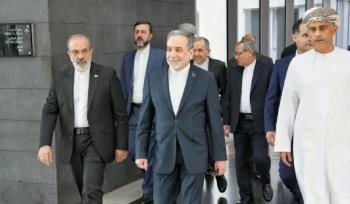Alwaght- One of the issues about the Iraqi Kurdistan region’s government that in past few decades gained attention is the relations between the Kurdish leaders and the Israeli regime authorities. The Kurdish-Israeli ties date back to 1965, when the Kurds' fight against the incumbent Iraqi President Abdul Rahman Arif witnessed its climactic juncture. At that time, the Kurds under command of Mullah Mustafa Barzani had started a deadly and rather long war to obtain independence of Kurdistan from the central Iraqi government.
The Israelis in the meantime negotiated with the Kurds, offering backing for them as they struggled to build an independent state. Mullah Mustafa Barzani welcomed the Israeli efforts to help the Kurds in their battle against the central Iraqi government. Tel Aviv supplied the Kurds with weapons, as at the same time sent Israeli military advisors to back the Kurdish military forces. Israeli backup also included economic supports. Following death of Mullah Mustafa in 1979, the Israelis held a memorial service for him in Al-Quds in the fortieth day of his death attended by Israeli officials. The service for Barzani was an emphasis of Israeli regime's support for the Kurds.
In the years after 1979, the Kurdish-Israeli contacts were kept standing, though in a limited form. But after 1991, a no-fly zone was established over northern Iraq by a US-led military coalition, giving the Kurds the chance to gain autonomy. This more than ever called attention of the Israelis to the northern Iraq. The least goal Tel Aviv sought behind its close relations with the Kurds was putting strains on its regional rivals. The maximum goal of the Israelis was to help building a state that stands as their ally, a country through which they could address their energy needs. But at that time the Israelis and Kurds did not publicize their relations and communications. This was impossible in practice for both domestic and regional sensitivity the Kurds felt.
In the years following the fall of the Baathist regime of Saddam Hussein in 2003, Kurdistan region gained a further international prestige as it was officially recognized as a federal state according to the Iraqi constitution. From that time on, the Israelis for two main reasons beefed up support for the Kurdish independence: first, rise of a Kurdish state in the heart of West Asia with a process quite similar to that of the Israeli regime can provide Tel Aviv with a regional allied government which will widen the Israeli strategic depth in the region. Second, the Israelis paid a specific attention to the Kurds to meet their strategic energy demands after discovering huge oil and gas reserves in the areas under Kurdish control. The Israeli leaders could access huge natural resources in the Kurdish region with a relatively cheap price. Such a motivation spurred a rise in the secret Israeli-Kurdish relations in the years after 2003.
After 2014, Kurdistan region was exposed to ISIS terrorist group’s attacks. One of the most important theories— or rumors— in this relation was that following capture of Sinjar district in Nineveh province as well as Makhmor town in south west Erbil by the terrorist group, the Israeli officials including Prime Minister Benjamin Netanyahu in contacts with the US officials warned that Kurdistan region was a red line and if Washington declined to intervene and support the Kurds, Tel Aviv will deploy fighter jets to back the Kurdish Peshmerga forces. The US officials who were aware of high costs of possible Israeli pro-Kurdish anti-ISIS campaign in the first hours of fall of Makhmor district to ISIS started backing for the Kurdish force, carrying out the first pro-Kurdish airstrikes by the American forces.
Although in the initial days of US pro-Kurdish bombing campaign the Kurdistan region’s Prime Minister Nechervan Barzani denied any American backing for the Kurds, the fact is that the theory of US support can be seen standing close to reality because when the ISIS forces advanced close to the Iraqi capital of Baghdad, the US declined to target them, but just two days after terrorist assault against the Kurdish region and while the terrorists were just 70 kilometers away from Erbil, the US in a speedy move hit ISIS positions in a large scale.
In general, although Tel Aviv did not publicize its support for Kurdistan region in the years after 1991 up to now, namely from the years of establishing the autonomous Kurdistan region, what can be seen real as a scenario is the fact that the Israelis after 2014 were present in Kurdistan by providing Erbil with military advisors, weapons, as well as military training for Peshmerga forces. Moreover, Tel Aviv backs the Kurdish independence as the most significant scenario helping the Israelis pursue their goals in West Asia region, because independence of the Kurds can in the best way transform the balance of regional power in favor of Tel Aviv.



























